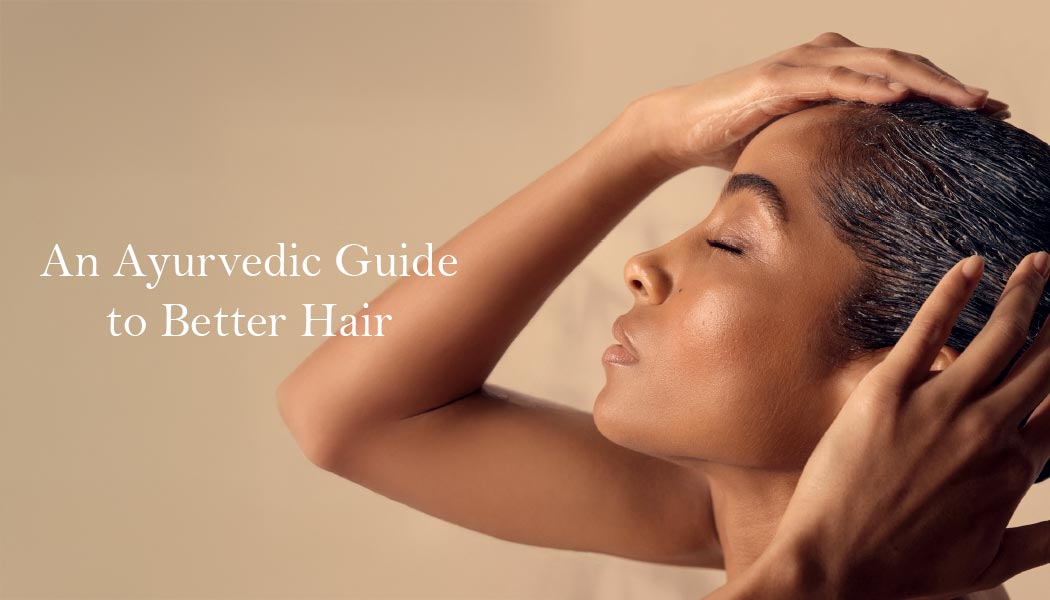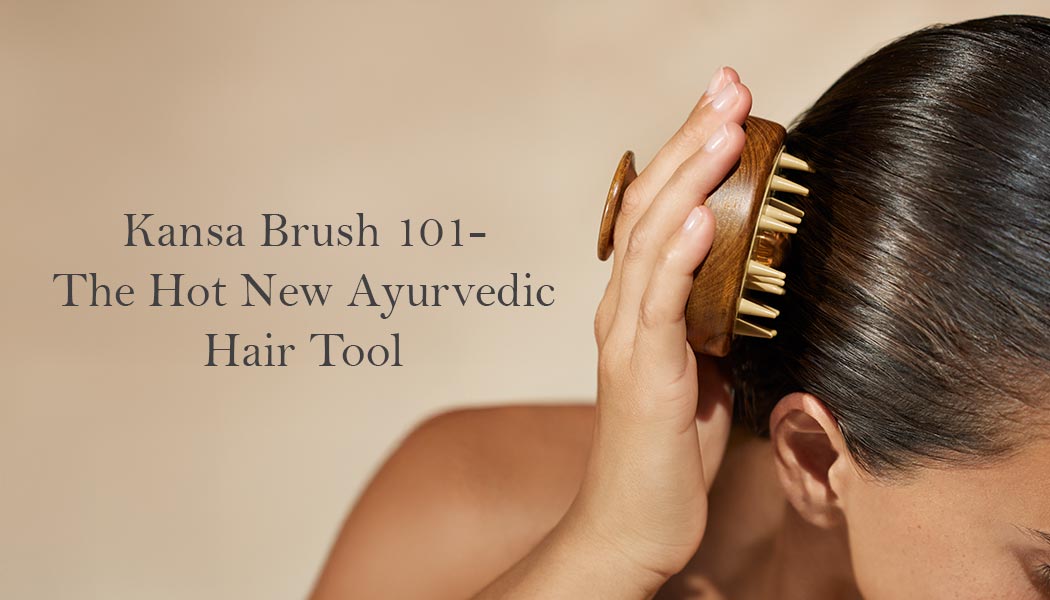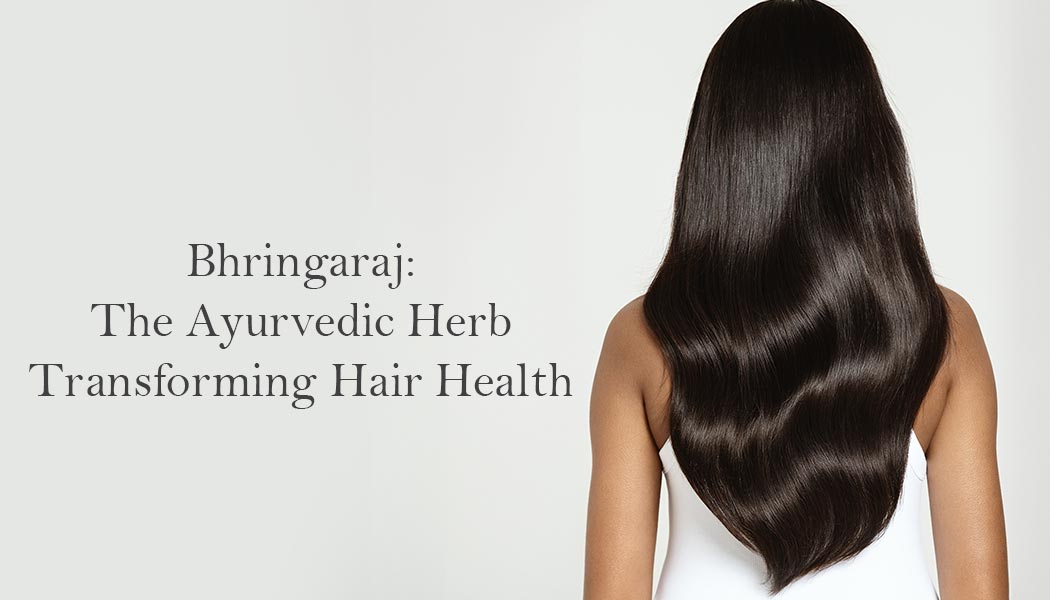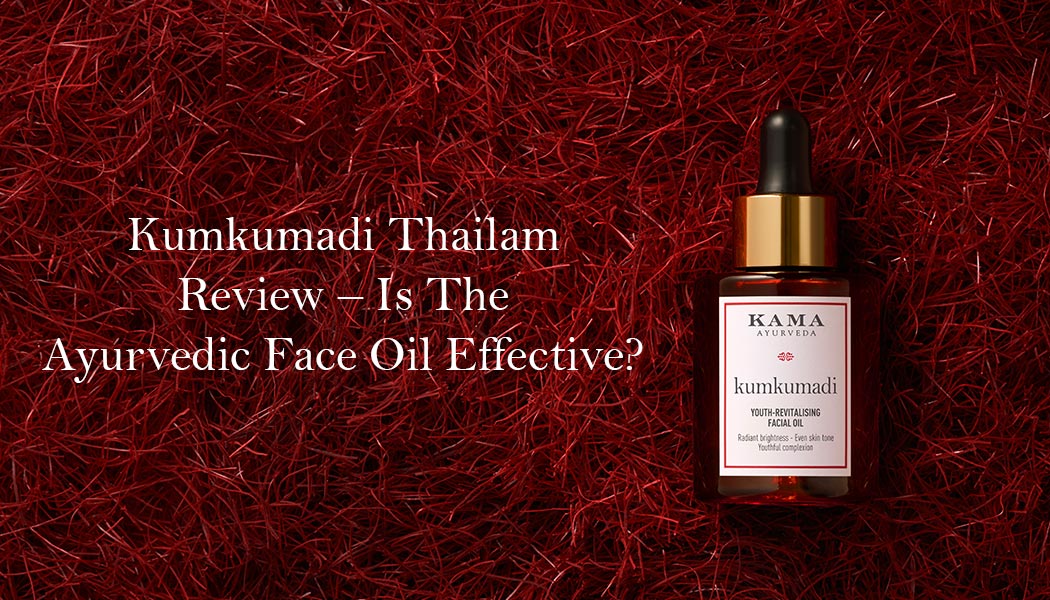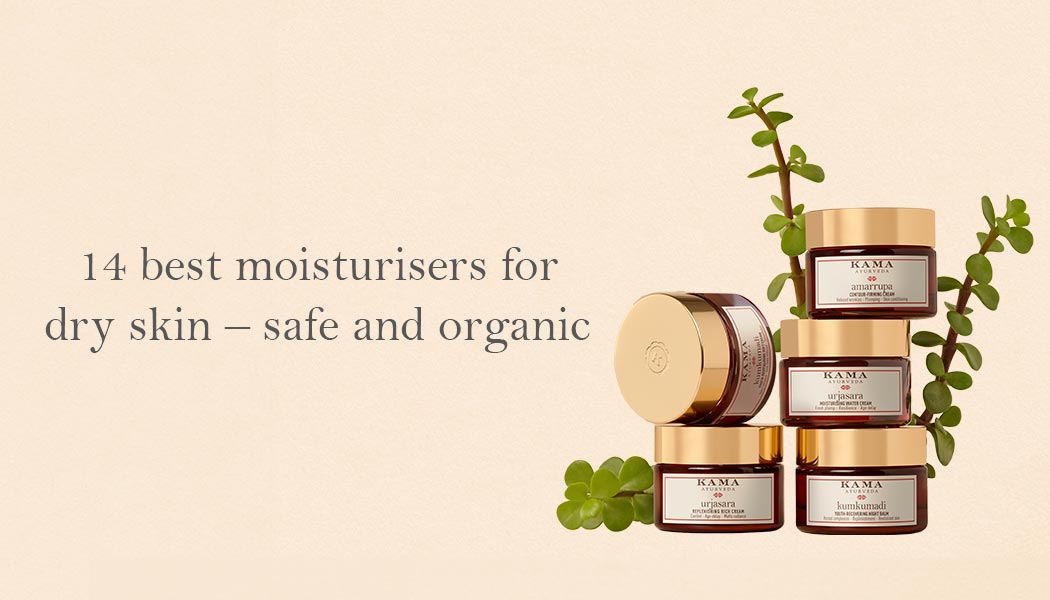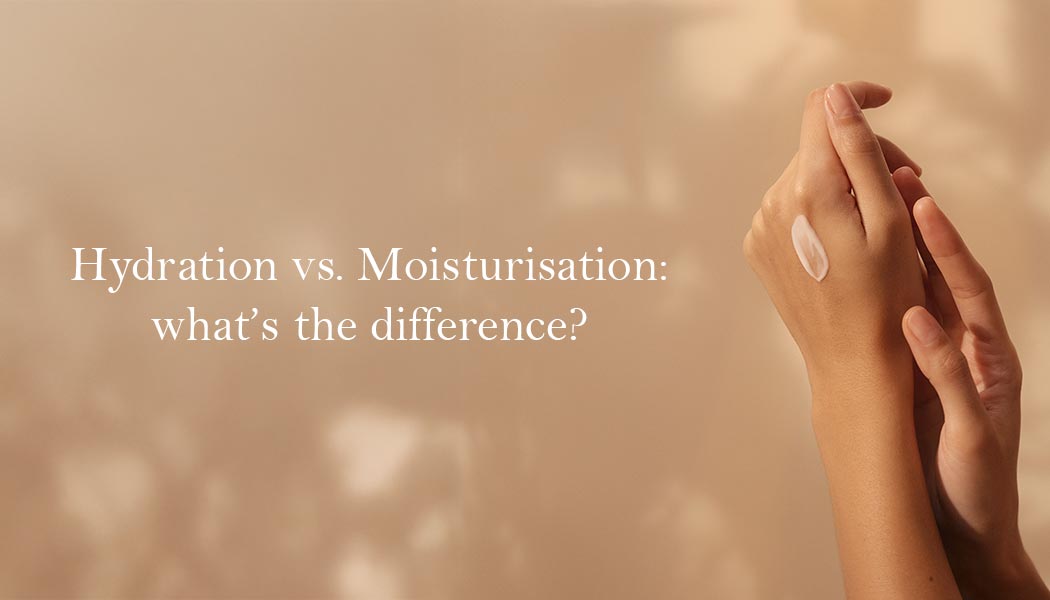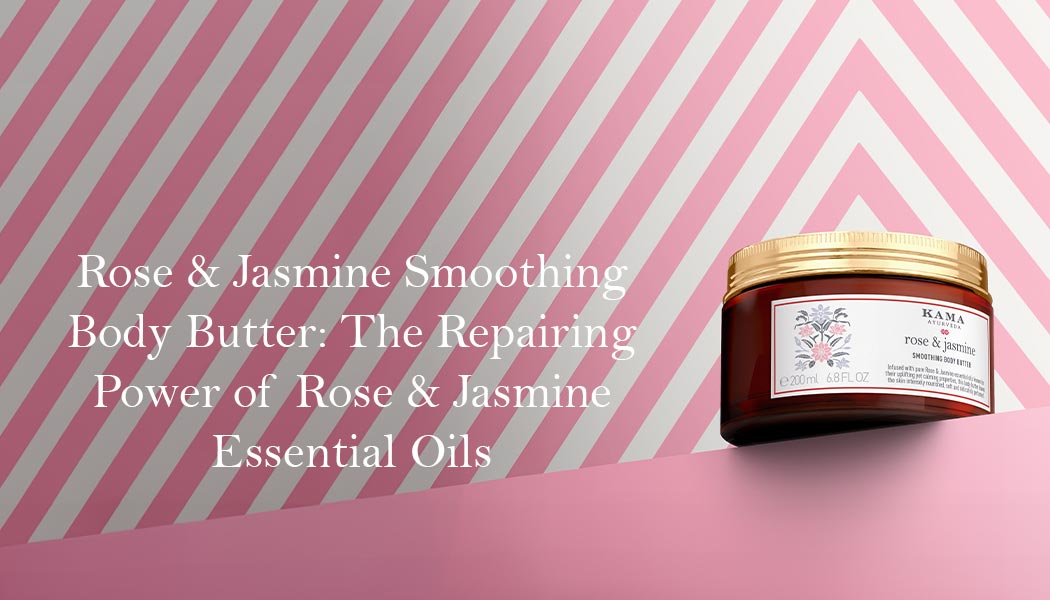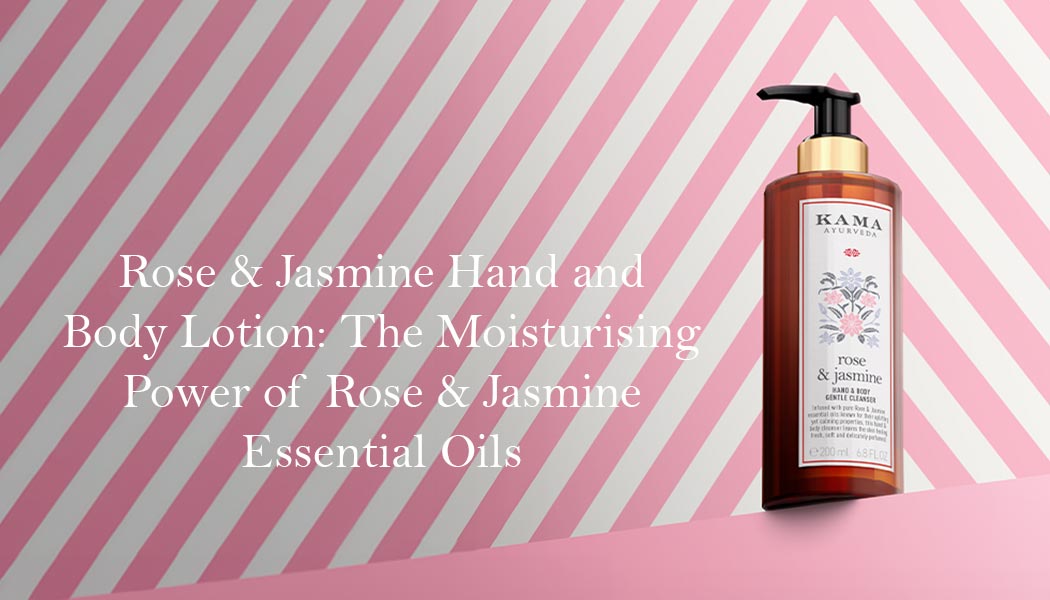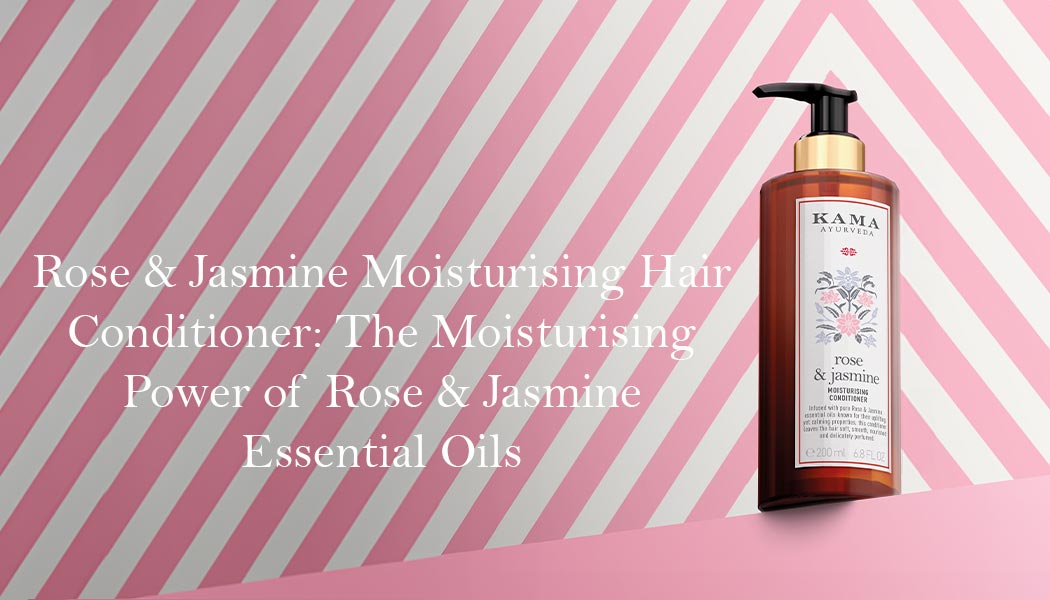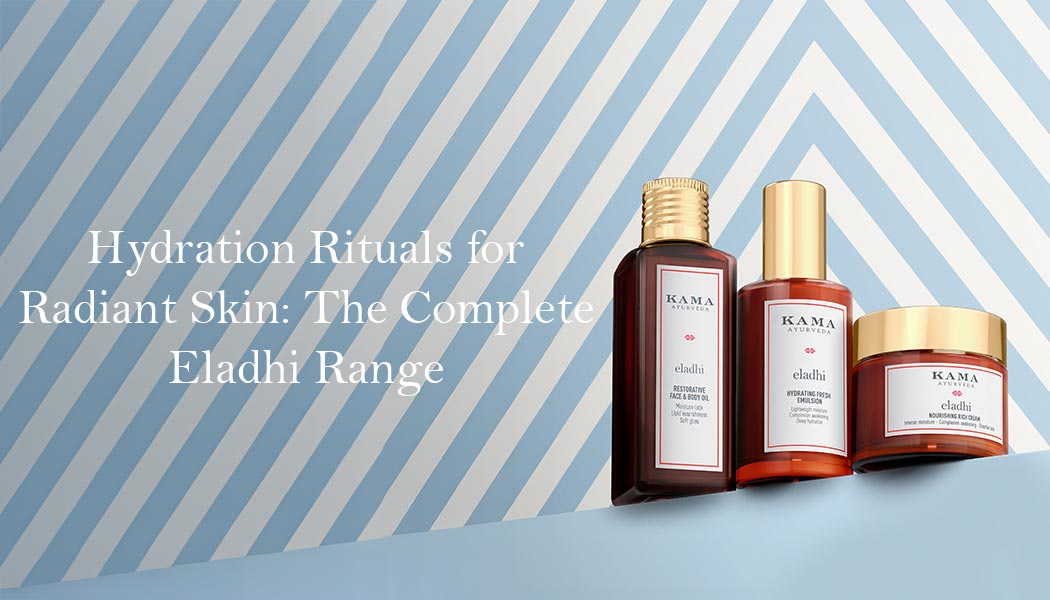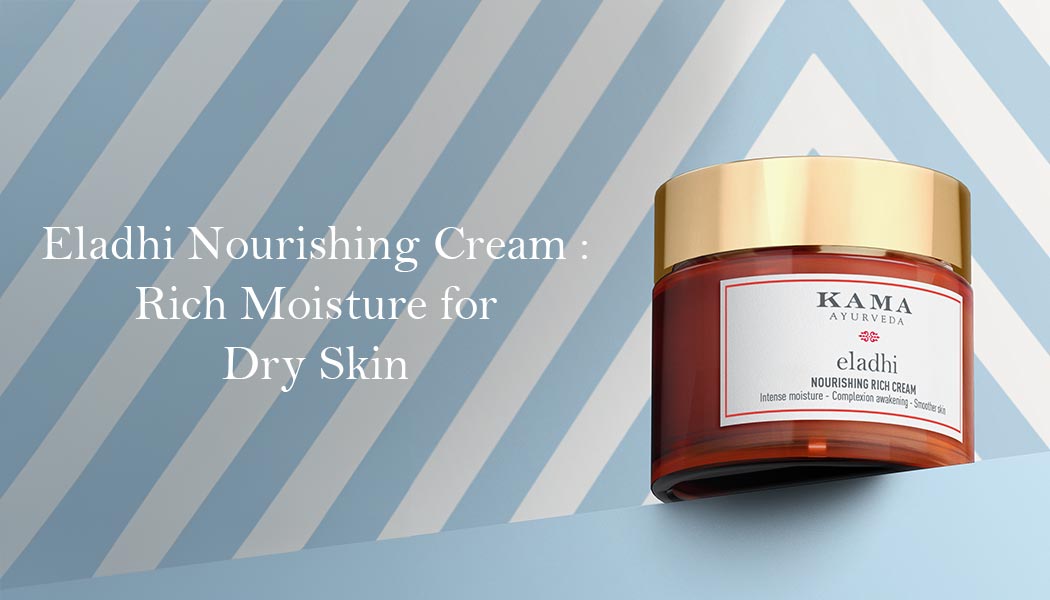- 11 August 2016
- 4 mins read
How and how often should people shampoo and oil their hair?
How often you should shampoo your hair changes from one individual to the other. If the scalp is more oily, it is okay to shampoo daily. Cleansing the scalp is more important than the hair as it is the place where sebum is concentrated. For most people, shampooing the hair twice a week is sufficient.
Which oil is best for specific hair types?
Massaging the scalp and hair with warm oil -- preferably infused with hair-friendly herbs -- is the best way to nourish the scalp and hair topically. Not only does the massage work wonders for the hair, but it also relaxes the mind and nervous system.
The first step to selecting the best oil is to understand what kind of hair you have, according to your ayurvedic constitution.
If your hair is thin, frizzy and prone to split-ends, you have Vata predominant hair.
If you have fine hair which is prone to premature thinning or greying, you have Pitta-predominant hair.
If your hair is thicky and oily, it is Kapha predominant.
If you are Vata-predominant: choose almond oil or sesame oil as the base oil. Both of these oils are very nourishing for the scalp and hair, and help reduce stiffness and tightness in the scalp.
If you are Pitta- predominant: coconut oil is the ideal choice. Because coconut is pitta pacifying, coconut oil massages can relieve hair problems such as thinning and premature greying, that are associated with an aggravated Pitta dosha.
If you are Kapha-predominant: sesame or olive oil are good choices.
Regular hair oil massages have the following benefits:
They lubricate and condition the scalp.
They enhance blood circulation in the head and neck area. When the scalp is "tight" from stress, circulation and hair growth are impeded.
They help relax the scalp, and increase pliability.
They help strengthen the roots of the hair and nourishes the hair-shafts, promoting new hair growth.
They helps soften and condition the hair, making it more manageable.
They spreads the natural oils of the hair, increasing hair lustre and vibrancy.
They help protect hair from the damaging effects of the sun and harsh weather by improving resilience over time.
They replenish and rejuvenate dry, damaged hair, and help prevent excessive brittleness and split-ends.
A warm hair massage oil should be done at least once a week. Vata predominant people should try to do this two or three times a week.
What are some good homemade hair packs for dry and oily hair respectively?
Homemade Hair Pack for Dry Hair - Scrape out all the coconut cream at the bottom of a tender green coconut. Put it in a vessel and warm it slightly for 1 minute. Slowly massage it into your hair from root to tip. Wrap your hair in a warm towel and stay put for an hour. Wash with a mild shampoo and air-dry hair naturally.
Homemade Hair Pack for Oily Hair - Mix juice of 1 fresh orange, 1 tbsp. honey and a 5-7 drops of lavender oil. Dilute in a cup of water. Use as an after-shampoo rinse. After 10 minutes, run cold water through the hair. Lavender oil stimulates hair growth, balances oil production and replenishes the hair and scalp.
Homemade Hair Pack for Dry Hair - Scrape out all the coconut cream at the bottom of a tender green coconut. Put it in a vessel and warm it slightly for 1 minute. Slowly massage it into your hair from root to tip. Wrap your hair in a warm towel and stay put for an hour. Wash with a mild shampoo and air-dry hair naturally.
Homemade Hair Pack for Oily Hair - Mix juice of 1 fresh orange, 1 tbsp. honey and a 5-7 drops of lavender oil. Dilute in a cup of water. Use as an after-shampoo rinse. After 10 minutes, run cold water through the hair. Lavender oil stimulates hair growth, balances oil production and replenishes the hair and scalp.
Can rain water cause damage to our hair? What should you do if you get wet in the rain?
Yes, rainwater can be harmful to the hair because it contains a lot of pollutants. If rainwater touches your hair, it damages your hair shaft and weakens your hair in the process.
If you get wet in the rain wash your hair as soon as possible with a mild shampoo, followed by a conditioner. Do not leave the rainwater in the hair for long time as it is high in chemical contents and can damage the hair.
What are few hair care regimens that are key to maintaining healthy hair during the monsoon?
If you do wet your hair in the rain, make sure that you wash your hair as soon as possible with a mild shampoo and condition after that. Do not leave the rainwater in the hair for long time as it is high in chemical contents and can damage the hair.
Do not use hair spray or gel in the monsoons as these stick to the scalp and cause dandruff. Avoid using a blow dryer. However, if your hair is wet at night, apply lots of leave-in conditioner on the hair and then blow dry on cold air.
Use a humidity-protective gel before styling. These gels help by forming a protective coat over the hair cuticle and prevent moisture from getting in, and also going out.Due to high humidity and wet hair, dandruff is a common problem in monsoon. Make sure that you use an effective anti-dandruff shampoo once a week. However, use your normal regular wash shampoo on other days.
The chlorine content in water during the monsoon is also very high; this can bleach and damage your hair. If possible wear caps or rain coats with a cap/hood to protect the hair from coming in contact with rain water.
The Monsoon is also a great time for lice to breed. In case of any itching on the scalp, use neem oil twice a week.

